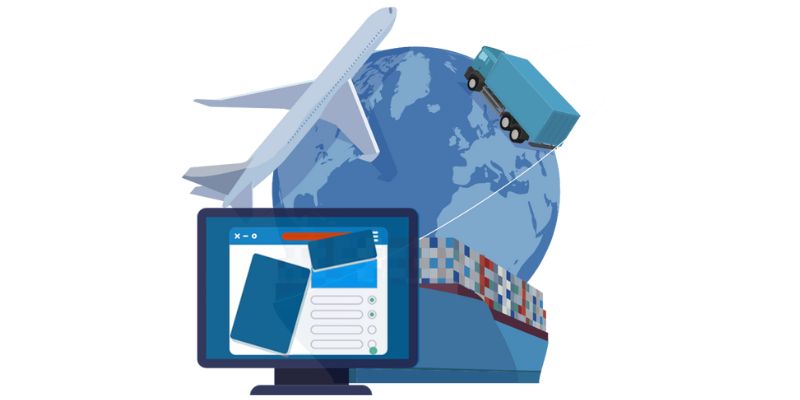In a globalized economy, the movement of goods across borders is critical to international trade. Freight forwarding, a service that arranges the transportation of goods from one destination to another, has traditionally been a complex and labour-intensive process. However, digital solutions have significantly streamlined this industry, enhancing efficiency, transparency, and customer satisfaction. A key player in this transformation is freight forwarding software in India, which has revolutionized the way logistics companies operate.
The Role of Freight Forwarders
Freight forwarders are intermediaries between shippers and various transportation services, such as ocean, air, and land carriers. They handle everything from documentation and customs clearance to cargo insurance and warehousing. Given the complexity and volume of paperwork, managing these tasks manually has long been a challenge, often leading to errors, delays, and additional costs.
As global trade has expanded, so has the demand for more efficient logistics solutions. This has paved the way for digital innovation in the freight forwarding industry. The introduction of specialized software has become a game-changer, offering a range of tools that simplify and automate many tasks traditionally handled by freight forwarders.
The Emergence of Freight Forwarding Software
They is designed to address the various challenges logistics companies face. This software integrates multiple functions into a single platform, enabling users to manage all aspects of freight forwarding, from quoting and booking to tracking and invoicing.
One of the key advantages of this software is its ability to automate repetitive tasks. For example, generating and managing documents such as bills of lading, commercial invoices, and packing lists can be done automatically, reducing the risk of human error. This saves time and ensures that all documentation is accurate and compliant with international regulations.
Another significant benefit of the software is real-time visibility. In the past, tracking shipments was often a cumbersome process that required constant communication between the forwarder and the carrier. Today, software solutions provide real-time updates on the status of shipments, allowing both the forwarder and the customer to monitor the progress of goods as they move through the supply chain.
Enhanced Communication and Collaboration
Effective communication is crucial in freight forwarding, as it involves coordination between multiple parties across different time zones and geographies. Facilitates seamless communication by providing a centralized platform where all stakeholders can access relevant information and updates.
For instance, the software allows freight forwarders to share shipping documents, track shipments, and communicate with carriers and customers through a single interface. This reduces the likelihood of miscommunication and ensures everyone is on the same page. Moreover, many software solutions offer multilingual support, making it easier for companies to operate in international markets.
Data-Driven Decision Making
In an industry with thin margins, making informed decisions is key to maintaining profitability. It provides logistics companies with valuable data that can be used to optimize operations. By analyzing data on shipping routes, carrier performance, and costs, companies can identify trends and make strategic decisions that improve efficiency and reduce costs.
Additionally, this software often includes reporting and analytics tools that allow users to generate customized reports. These reports can provide insights into various aspects of the business, such as revenue, expenses, and customer satisfaction, helping companies to identify areas for improvement and make data-driven decisions.
Compliance and Risk Management
Compliance with international trade regulations is a major concern for freight forwarders. Failure to comply with these regulations can result in fines, delays, and even the seizure of goods. Freight forwarding software helps companies stay compliant by automatically updating regulatory requirements and ensuring all necessary documentation is in order.
Risk management is another critical aspect of freight forwarding. The software can help identify potential risks, such as delays or disruptions in the supply chain, and provide solutions to mitigate these risks. For example, the software can suggest alternative routes or carriers if a particular shipment is likely to be delayed.
The Future of Freight Forwarding
As the logistics industry continues to evolve, the role of technology in freight forwarding is only set to grow. With the increasing adoption of technologies such as artificial intelligence (AI), machine learning, and blockchain, it is expected to become even more sophisticated, offering advanced features such as predictive analytics, automated decision-making, and enhanced security.
AI, for instance, can predict potential delays or disruptions in the supply chain, allowing companies to take proactive measures to avoid these issues. Blockchain technology, on the other hand, can provide a secure and transparent way to manage and verify transactions, reducing the risk of fraud and ensuring the integrity of the supply chain.
In conclusion, freight forwarding software has become an indispensable tool for logistics companies, offering a range of benefits that improve efficiency, reduce costs, and enhance customer satisfaction. As the industry continues to embrace digital transformation, the future of freight forwarding looks promising, with technology playing a central role in shaping the next generation of logistics solutions.



